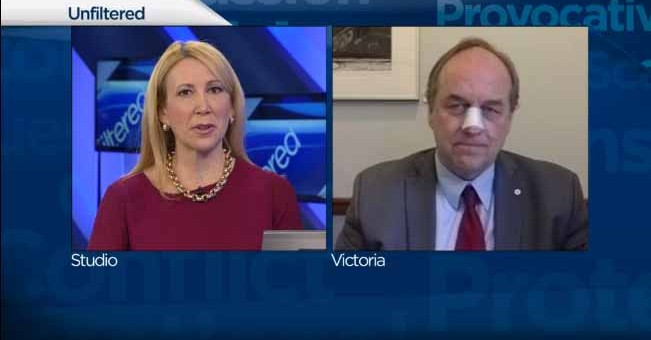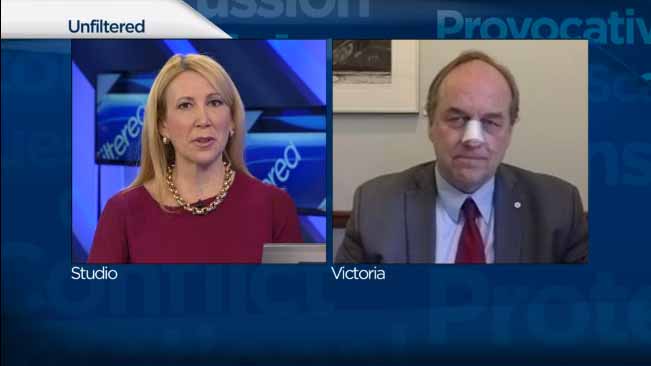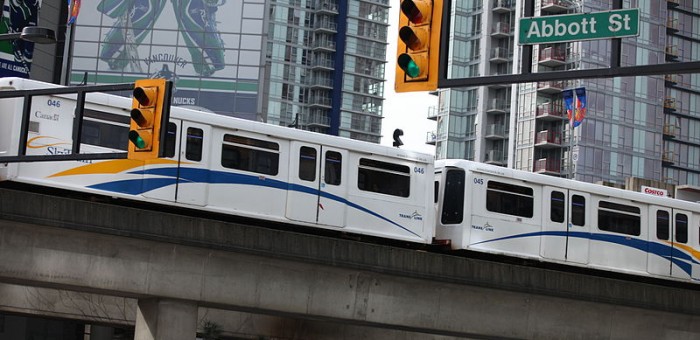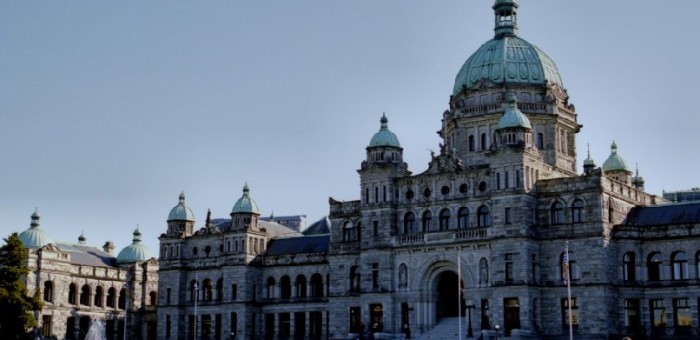Democratic Reform
Why I am opposing Bill 20: Election Amendment Act
In the coming weeks, we will be debating Bill 20: Election Amendment Act. I recently did an interview on BC1 Unfiltered which outlines the reasons why I will be opposing the Bill.
The BC1 Interview
Samantha Falk was stepping in for Jill Krop in the interview.
Vancouver’s TransLink (not Transit) Referendum
Over the next few months the residents of Metro Vancouver will help shape the future of public transit in their region. The question is clear and the stakes are high:
“Do you support a new 0.5% Metro Vancouver Congestion Improvement Tax, to be dedicated to the Mayors’ Transportation and Transit Plan? Yes or No.“
The vote has sparked a heated debate about TransLink, public transit, how to fund it, and its future in the Lower Mainland. No matter what the result of this plebiscite is, it will have repercussions that echo across British Columbia.
A Flawed Plebiscite
The residents of Metro Vancouver are being asked to accept or reject a 0.5% regional increase to the provincial sales tax. All of the money raised by this tax will be used to fund much needed improvements to Metro Vancouver public transit system. I have already written about this referendum and the abdication of responsibility it represents. Governance is about dealing with issues; not letting them fester and hoping someone else takes the blame. True leadership means listening to stakeholders and being open to compromises. It means making difficult, necessary and, at times, unpopular decisions.
The provincial government was given an opportunity to display this kind of leadership. Metro Vancouver expects one million new residents in the next 30 years, putting an extra strain on an already overburdened transportation system. It is a problem that requires decisive, well thought out action that engages stakeholders and fixes systemic problems. Instead the government decided to duck its responsibility and hold a plebiscite.
The referendum began as a campaign promise. During the 2013 election the BC Liberals were down in the polls and grasping at straws. In a move that put politics before leadership, the Premier promised that any new TransLink tax would go before a referendum. Public Transit is a complicated issue; it’s a balancing act of providing services and staying affordable. It requires listening to the citizens of today while working for those of tomorrow.
Unfortunately, the BC Liberals ignored this.
With a focus on purely political outcomes, they waded, half-cocked, into a complex issue and we are witnessing the results. They set in motion a $6 million dollar referendum, the first in Canadian history asking voters to directly approve a tax, while ignoring the serious structural issues in Vancouver’s public transit.
Perhaps this explains why the province is asking the wrong question. They could have followed the Premier’s original plan and asked a more nuanced question. In her own words, “It needs to be a multiple-choice question. A simple ‘yes’ or ‘no’ doesn’t do justice to the questions that are there.” This would have given voters more options, saving them from choosing between another regressive tax hike and a struggling transit system. Better yet, they could have explored a key concern by asking voters about the organization that runs public transit in Metro Vancouver. They could have asked a question about TransLink.
The latest polls paint a very clear picture. Only 12% of respondents, on either side, have a positive opinion of TransLink. Contrast this with the 39% that believe “TransLink is very broken and needs a complete overhaul”’ and the additional 25% who have a generally negative view of the organization. In fact, 61% of those planning to vote No, believe that TransLink cannot be trusted with the extra funds to be raised by this tax. The Vancouver referendum is turning into a vote about TransLink and the management of its 1.5 billion dollar annual budget instead of a vote about transit.
Despite all of this, Transportation Minister Todd Stone has made it clear that he will not reform TransLink, regardless of the plebiscite’s results. The government promised a referendum while refusing to listen to residents of the Lower Mainland. They’re not just voting No to the tax increase, they’re voting No to TransLink. People are calling for change. People are calling for reform. And the government is pretending that they can’t hear them.
There are serious problems with TransLink. And here I am not only talking about the examples of waste outlined by the No Transit Tax campaign. Improving inefficiency and eliminating wasteful processes is important, but will not come close to raising the needed funds.
My concerns have more to do with the structure of TransLink and the unfortunate relationship it has had with the province. In my view this referendum has given us the opportunity to open a conversation about TransLink. It has to regain the trust of the people it serves. Regardless of how Metro Vancouver votes, there needs to be change. In order to understand how to move forward, I think it is important to first look back, not only at the referendum but also at TransLink itself.
A History of Interference
TransLink was set up by the BC NDP and took over services from BC Transit in 1999. It was envisioned as a more accountable, more local and a more fiscally independent organization. It was given an expanded mandate including roads and bridges, in addition to buses and trains. Unlike its predecessor, the board of TransLink was elected. Along with this accountability came the new power to raise taxes independently, allowing for more financial security and long term planning. Over the next decade this oversight, and the original vision, for TransLink, would be stripped away, leaving us with the transportation authority we have today.
The Provincial Government’s meddling began months before TransLink officially began operations. Glen Clark’s NDP government announced the construction of the Millennium Line, a system that would use SkyTrain technology and run only through NDP ridings. This biased route earned it the nickname a ‘train to nowhere’. Besides the obvious partisan criticism, it also drew the ire of the local officials. The new line would derail their plans for a light rapid transit to Coquitlam and saddled TransLink with significant costs.
Not to be outdone, Gordon Campbell’s Liberal government also blocked a transit line to Coquitlam, this time to build the Canada Line. This SkyTrain project connected the Vancouver International Airport with the downtown core. The project was a centerpiece for their Olympic proposal and faced heavy resistance within the TransLink board. They had serious concerns over cost and believed that the resources were much better spent elsewhere. They voted against the government’s proposal twice before finally backing down, accepting the project with substantial fiscal safeguards.
The delay prompted Transportation Minister Kevin Falcon to announce sweeping changes to the TransLink board. He claimed the elected board was too narrow in their thinking, especially in the debates surrounding the Canada Line. In other words, he was saying that the local board created to serve local citizens was too local in its thinking.
TransLink was designed as a regional authority, which was transparent and fully accountable to the people Metro Vancouver. As a body with the authority to raise taxes and seriously impact the lives of residents throughout the region it needed to have a social license to operate. It had to be attentive to the needs of the people. This all ended with Minister Falcon’s interventions.
Governance and Reform
Before the Minister’s sweeping changes were made, a board of fifteen directors ran TransLink. Twelve of the directors were mayors and councillors appointed by Metro Vancouver. The remaining three were Provincial MLAs, although these seats usually remained vacant. The directors made tough decisions but had to engage with voters to build support for policies.
The authority is now run by two boards. One is still elected — the Mayors’ Council consisting of all elected representatives in the Metro Vancouver area. The council has the power to oversee the sale of major assets as well as approve various proposals by the TransLink Board of Directors.
Mayors’ Council also choose the members of the Board of Directors. Perhaps ‘sort of choose’ is a better way to say this. Every year the Mayors’ Council receives a short list of individuals nominated by a screening panel made up of government and professional representations. The Mayors than choose new directors from this list. If they do not choose enough directors to fill the empty seats the decision reverts to the screening panel.
This appointed board has a wide range of responsibilities including developing long term plans, approving TransLink’s operating budget and running the ‘day-to-day’ operations of TransLink. Despite this significant power there is no way to hold board members accountable. They can only be fired by provincial legislation, and don’t have to worry about re-election. The process was intentionally designed to be a step removed from democracy, mirroring port and airport legislation. The key difference between TransLink and any port authority is that TransLink has the ability to raise taxes on more than 2 million people.
Two board seats have been recently added for mayors and two more, still vacant, have been added for province. While these tentative steps towards engagement and democratization are a step in the right direction they do not go nearly far enough.
Regardless of the results of the plebiscite, TransLink’s governance must be reformed. It is far too big and far too powerful to be so far removed from democracy. There has been much talk about the need for change, but not nearly enough on how this change could occur. An interesting place to start this discussion would be to examine the way public transit is governed in London, England.
Like Metro Vancouver, London’s transportation system is run by a large organization (Transportation for London — TFL) with a broad mandate including buses, trains, roads and cyclists. Unlike Metro Vancouver the ultimate power is in the hands of the mayor. This democratically elected representative sets an overall vision for the city and designs the policies and the strategies that will bring it into practice.
The mayor is also the chair of the TFL Board of Directors. This board is responsible for implementing the vision and strategies put forward by the mayor. Each of these directors is handpicked by the mayor and is drawn from a broad spectrum and currently includes the Executive Chairman of British Airways and a licensed taxi driver.
Transposing this model onto TransLink, the authority would still be run by two boards but the power dynamic would shift. The elected and accountable Mayors’ Council would be responsible for deciding organizational goals and the policies which could bring them to fruition. The mayors currently sitting on the board of directors could move to chair positions. The Council as a whole could appoint the other directors directly and be able to end their tenure early, should the need arise.
This is by no means the only avenue for change, it is just one model that has worked in one place. The new TransLink must be the result of significant consultation and debate and I only mean to illustrate one potential alternative.
Conclusion
This referendum shouldn’t have happened. At best, it is a misguided dereliction of duty on the part of the provincial government. At worst it is a cynical political ploy. If Premier Clark was serious about bringing democracy back to TransLink then she should have done so. The Premier should have reformed the organization, bringing back democracy consistently, instead of throwing voters a bone when it’s politically convenient.
It is unfortunate that the province decided to take us down this path. It has not stopped people from expressing their distrust of TransLink, but it has left them without a proper forum to call for change. Regardless of how the Lower Mainland votes there needs to be a serious conversation about TransLink. And this conversation should not only be about its flaws. It should also be about how we can fix them. The call for change may have begun with a referendum but it doesn’t need to end there.
Finally, as I wrote in the article in February, if I lived in Vancouver, I would vote ‘Yes’. I would do so reluctantly. I would do so begrudgingly. And I would do so frustratedly, knowing that my provincial government had abdicated its leadership responsibility.
These are my thoughts on TransLink. What are yours?
Amending and Subamending the Throne Speech – The Vote
Today in the Legislature we continued debate on the Speech from the Throne and voted on the amendment put forward by Selina Robinson, NDP MLA for Coquitlam-Maillardville, as well as the sub-amendment that I put forward.
In an earlier post I noted that the role of government is to offer British Columbians a vision. The role of opposition, if they do not like the vision government is offering, is to offer a counter-vision. I tried to offer such a counter-vision in my response to the Speech from the Throne.
Unfortunately, I felt that amendment (reproduced below) put forward by the BC NDP wasn’t constructive.
I agree that the government did promise to give every British Columbian a general practitioner by 2015. I agree that seniors do not have flexible options for home care. I agree that young people in the province face uncertain job prospects, in particular in light of the fact that we’re re-engineering our education system for a hypothetical industry that I’ve been saying for more than two years now is not supported by the economic reality that the world is oversupplied with natural gas. However, it is our responsibility as opposition, when we don’t agree with government’s vision, to offer a vision that we can hang our hats on. And that is why I offered my sub-amendment (reproduced below).
Below you will see that both the sub-amendment and amendment were defeated. I am grateful to the BC NDP and Vicki Huntington, the Independent MLA from Delta South for supporting my sub-amendment. I could not support the BC NDP amendment without the sub-amendment first being passed as in my view it’s not enough to offer blind criticism, without offering up alternate solutions and ways forward. Had the sub-amendment passed, I would have voted in support of the amendment.
Sub-amendment Vote
To sub-amend the amendment by striking out the “period” after 2015 and inserting the words “and recognizes that leadership in government requires a commitment to seek out and incorporate ideas from others, while leadership in opposition requires a commitment to offering solutions, and hence calls on this House to collaborate on the development of a new vision for British Columbia that builds on the good ideas of all members, regardless of their party affiliation.”]
Amendment Vote
[Be it resolved that the motion “We, Her Majesty’s most dutiful and loyal subjects, the Legislative Assembly of British Columbia, in session assembled, beg leave to thank Your Honour for the gracious Speech which Your Honour has addressed to us at the opening of the present session,” be amended by adding the following:
“and that the Legislative Assembly of British Columbia regrets that the families in the province have seen their wages fall as they pay more for their basic services, while the government gives a break to the highest two per cent of income earners; regrets that the government has failed to meet its commitment that all British Columbians will have access to a general practitioner by 2015; regrets that seniors still do not have flexible options for home care or assisted living; regrets that young people in the province face uncertain job prospects as the government has bet on one sector rather than working with businesses and workers across B.C. to reach their potential; and regrets that the government will not fulfill its commitment for at least one LNG pipeline and terminal online in B.C. by 2015.”]
Committee System in Need of Reform
When the BC Legislature’s Aboriginal Affairs Committee last met in 2003 for three minutes and it’s Education Committee last met in 2005 for a total of 12 minutes you know things have to change.
Yesterday, Vicki Huntington, Independent MLA for Delta South and I submitted a letter to the House Leaders of both the BC Liberals and the BCNDP calling for a renewed dialogue on how we can meaningfully improve the committee system in BC. This letter followed up on previous commitments from the government to begin a discussion on this topic.
A properly functioning committee can play an important role of scrutiny and oversight and provide a valuable role for backbench MLAs. Too often legislation is brought forward without the time taken to gather input from MLAs and the wider public. One simple way we can ensure that our politicians are receiving the best possible information on the issues of greatest concern to British Columbians is through a reformed committee process.
There is hope that this conversation may amount to more than just words. Both the NDP House Leader and the Premier have expressed an interest in the previous fall sitting for a dialogue about reforming how our committee system operates.
The lack of committees was recently highlighted when the Official Opposition formed its own Opposition Standing Committee on Agriculture and Food, in absence of one actually sitting in the legislature. Vicki Huntington will act as the vice chair for this opposition led committee.
I think this highlights how broken the system is. We need to see a more collaborative and less confrontational approach to governance in British Columbia.
Please see below for MLA Huntington and my letter to the House Leaders.
February 5, 2015
Dear Minister de Jong and Mr. Farnworth:
Re: Meeting on committee reform
We are writing to arrange a meeting between the House Leaders and Independent MLAs to discuss mutually agreeable opportunities for committee reform. Due to scheduling difficulties we were unable to arrange such a meeting during the fall, but we are hopeful that the spring session will afford us with an opportunity to work together to improve our legislative committee system.
For your records, we have outlined a brief timeline of last year’s events relating to committee reform, and attached the relevant documents and transcripts:
- February 3, 2014: The Member from Delta South writes to the House Leaders to outline proposals for committee reform and suggest the House work together to find agreeable improvements.
- February 27, 2014: The Member from Juan de Fuca introduces the Standing Committee Reform Act, 2014.
- May 29, 2014: During estimates debate, the Member from Delta South asks the Premier to refer the issue of committee reform to the Parliamentary Reform committee. The Premier says she will consider the request in consultation with the House Leaders.
- June 13, 2014: The Member from Delta South writes to the Premier to follow up on her estimates request.
- July 30, 2014: The Premier says she has asked the Government House Leader to canvass the opposition “for input on areas for potential reform.”
- October 17, 2014: The Member from Delta South writes to the Government House Leader regarding a potential agenda for a meeting with the House Leaders and the Member from Oak Bay-Gordon Head.
We believe that all Members would like to improve our committee system. While we understand that the immediate interest of the House Leaders is on changing the estimates process, we urge consideration and discussion of the broader issue. We look forward to working with you both on this issue when the House resumes.
Sincerely,
Andrew Weaver, MLA
Oak Bay – Gordon Head
Vicki Huntington, MLA
Delta South









